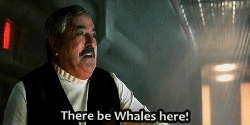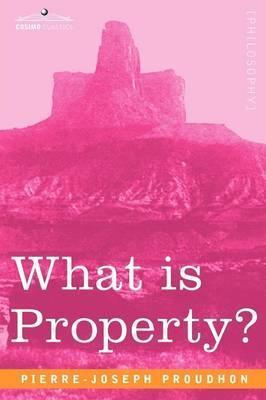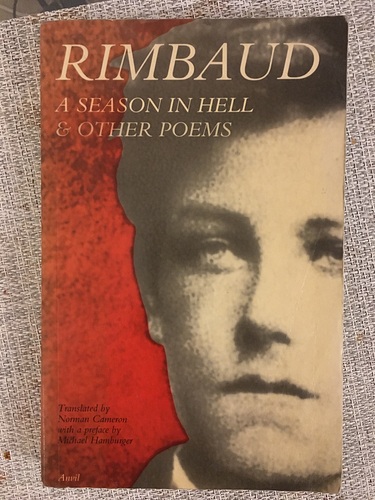I’ve been trying to read Moby Dick but I’ve only made it through like 50 pages in about 2 months.
I’ve read a few books on whaling, and have been to the Whaling Museum in New Bedford a couple of times, so it shouldn’t be too hard for me to get into Moby Dick. But I just can’t really seem to get into a groove with it.
You guys should read We Have Always Lived in the Castle. Canon. Short. Amazing.
Because it’s not really about whaling

The Economists’ Hour: False Prophets, Free Markets, and the Fracture of Society
by Binyamin Appelbaum
An ok explanation of what Applebaum calls the Economist’s Hour, which other’s might call the neoliberal turn and even others would call the market counterrevolution and journals the movement from the 1969 to 2008 in which, in this telling, US policy shifted from being focused on policy in political terms and more about policy in economic terms.
I say ok because the book generally focuses on one person who was the driving force behind one aspect of the movement whether it be Friedman in advancing the idea of reducing government spending and popularizing neoliberal economics as the “common sense” way of thinking of things, to Laffer and supply side economics, to some other economists dealing with deregulation. So you kind of get a lot of minibiographies
 Moby Dick, but there are definitely a whole lot of chapters you can safely skip over.
Moby Dick, but there are definitely a whole lot of chapters you can safely skip over.
I’ve been listening to Camus’s The Plague when I’m out for walks, because really there’s never been a more relevant time for it. Just can’t help but identify with these fictional characters dealing with a fictional lockdown --they behave so very much like what we see around us today.
the sister
I loved The Plague when I was a gloomy teenager. I was thinking about re-reading it but wondered if that it was probably supposed to be metaphorical might annoy me in an actual plague situation.
Another great ‘cannon’ plague book I remember is The Decameron, 100 short, often weird, stories from the olden days, loads of them just obviously ripping the piss out of the church. As a lapsed Catholic it was also right up my street.
I read that a long time ago - heavyweight Russian lit is a good choice for these times if you want to fully immerse yourself in something different and meaningful (also Chekov’s short stories are wonderful and unpretentious if you fancy something shorter) - but preferred C&P.
I never started Proust - but gl with it of course - because I was put off by a big lit friend struggling with 50 pages of memories of the smell of wild strawberries of his youth (or w/e it was).
Great thing about The Plague is that so many of the people in the book act the very same way we see people acting today: some don’t take it seriously, some do little things to try to help, some find a kind of solidarity during the lockdown, etc.
I’m like 20% through the Decameron and I’ve kind of lost interest. It’s not really about a plague, it’s just that there’s a plague going on in the background that serves as a device to get people together telling stories.
Thanks, I don’t remember the detail so I think I’ll put it up next on the reading list. I’d guess if you’ve not fallen in love with The Decameron by now you won’t. I think I remember the stories get longer and a bit more involved as it goes on, but it’s the same kind of thing and, as you say, not really about Plague.
How do readers here generally choose which translation to go for?
I went through a phase of reading a ton of Rimbaud a few years back and the difference between various translations was stark to the point that if I’d started with the worst, most literal translation I might have abandoned it.
I google it and see what more knowledgeable people on the subject have to say. I also look at reviews on Goodreads or even Amazon.
For example, you said you’ve read a ton of Rimbaud by various translators. So what translation of A Season in Hell would you recommend?
Norman Cameron’s gave me the most pleasure.
In pre Amazon times I didn’t manage to find a copy of Fowlie’s translation that Graham Robb (author of a really good biography he was kind enough to sign for me) raves about.
Never read Rimbaud, but as I did it to amuse me here’s my effort at a random one which took all of ~15 minutes.
(Translating poetry well is so hard as to be almost pointless, obvs)
At the Cabaret Vert
For eight days I had shredded my boots
on the pebbled roads. I entered Charleroi.
—At the Cabaret Vert: I asked for sandwiches
Half cold butter and ham.
Blessed, I stretched out my legs under the green table
I looked at the naive drawings
on the tapestry. —And it was great
when the girl with large breasts, with lively eyes,
— that one, it’s not kisses that scare her! —
Giggly, she brought me bread and butter,
tepid ham on a stained plate.
Pink ham and white infused with a
garlic clove —and fill me with the foamy pint
which shines golden in the sunlight behind it.
Great, though I don’t remember the original.
Can you do Eternitee?

About 12% into it. This is heavy, Doc.
I’m going to bed now, this one was much harder.
Eternity
It’s found
What? —Eternity
It’s the sea coming
With the sun
Nightwatch soul
Whisper the vow
Of the pointless night
And of the day in flames
Of human sufferings
Of common impulses
So you break out
And flee
Because of you alone
Satin embers,
Duty breathes
And forces: finally
Hope’s steps,
Nul orietur
Science and patience,
The punishment is certain.
It’s found
What? —Eternity
It’s the sea coming
With the sun
(I think ‘nul orietur’ is latin?)
It’s a fiendishly difficult piece of symbolist poetry to translate, and impressive you haven’t even drawn a blank with any of the text. Good effort. I like how Cameron abandons the idea of faithful translations of the text to get more of a certain feel and imagery, but as a non-French speaker I can only really imagine what AR’s original intentions were (though having said that I did end up making what inadvertently turned into quite a study of his fascinatingly extreme life, even making a diversion with a tolerant gf by car from Brussels to Italy via an afternoon in his birthplace in France near the border lol).
Cameron has
TIME WITHOUT END
We have found it again.
What? Time without end.
'Tis the ocean gone for a walk with the sun.
Soul, you sentinel,
Murmur and confess.
Day is fiery hell,
Night is nothingness.
From the common urges,
From the human highest
Far they path diverges:
Following thou fliest…
No expectancy,
No orietur,
Science patiently;
Punishment is sure.
From your blaze alone,
Satin flames of force,
Duty’s breath is blown;
No one says: of course.
We have found it again.
What? Time without end.
'Tis the ocean gone for a walk with the sun.
===========================================================================
Compare that with one I didn’t like very much:
ETERNITY
It is recovered.
Why? Eternity.
In the whirling light
Of sun become sea.
O my sentinel soul,
Let us desire
The nothing of night
And the day on fire.
From the applause of the World
And the striving of Man
You set yourself free
And fly as you can.
For out of you only,
Soft silken embers,
Duty arises
Nor surfeit remembers.
Then shall all hope fail,
No orietur,
Science with patience,
The torment is sure.
It is recovered.
What? Eternity.
In the whirling light
Of sun become sea.
though looking at it now it has some nice parts.
